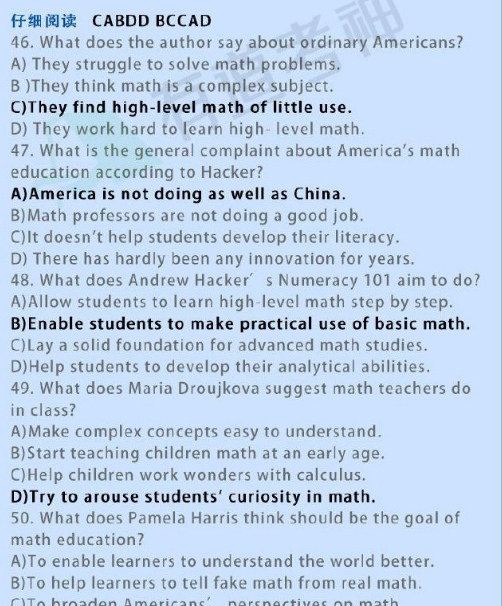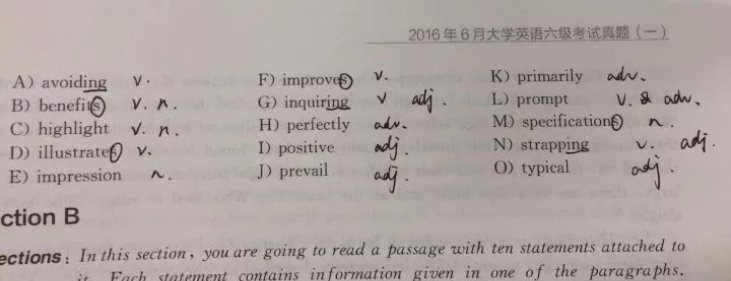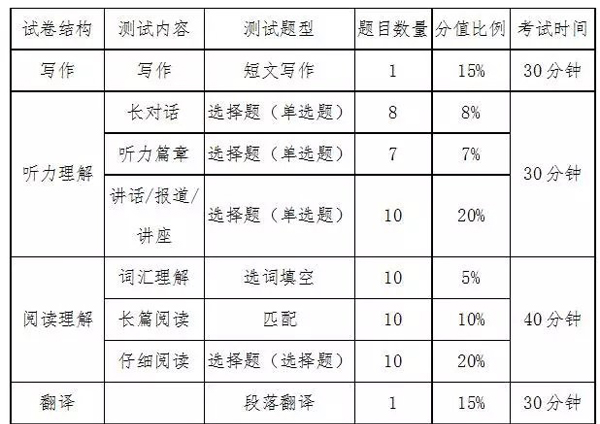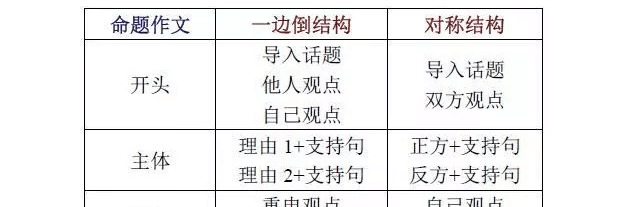自考“英语(一)”笔记 五十六
|
15.unrealistic adj. impractical (不切实际的) 1)It is unrealistic to expect better conditions in the near future. (在不远的将来指望有更好的形势是不现实的。) 2)This demand proved unrealistic and unworkable. (这个要求证明是不切实际且不可行的。) 3)You have unrealistic expectations. (你的期望不切实际。) 16.imitate v. 模仿 imitation n. 模仿 imitative adj. 模仿的;仿制的 1)Many writers imitate the language of Shakespeare. (许多作家模仿莎士比亚的语言。) 2)His handwriting is difficult to imitate. (他的笔迹很难模仿。) 3)Children learn many things by imitation. (儿童通过模仿学会许多东西。) 4)Acting is an imitative art. (表演是一种模仿性艺术。) 5)Monkeys are imitative (猴儿爱模仿。) 17.undermine vt. weaken (侵蚀…基础;暗中破坏;逐渐损害) 1)Many severe colds undermined the old man's health.(多次严重的感冒损害了老人的健康。) 2)Failures undermined her confidence. (一再的失败使她渐渐丧失了信心。) 3)The foundations of the house have been undermined by groundwater.(地下水侵蚀了这座房屋的地基。) 18.jeopardize vt. threaten endanger (使处于危险境地;危及,损害) 1)He jeopardized his life to save the drowning child. (他冒着生命危害救护那个溺水儿童。) 2)He jeopardized his fortune by making bad investments.(他由于投资不当而危及自己的财产。) 3)I didn't want to jeopardize my relationship with my new friend.(我不想损害我和新朋友的关系。) 19.interpret vt. 解释;口译 interpretation n. 解释;口译 interpreter n. 口译者 1)Literature helps to interpret life. (文学有助于阐明人生的意义。) 2)His silence was interpreted as consent. (他的沉默被认为是同意。) 3)People often give different interpretations of the past. (人们往往对过去作出不同的解释。) 4)He is talking to the foreign guest through an interpreter. (他正通过译员与外国客人交谈。) 20.monitor n. 监视器;监控器;监听员;班长v. 监听;监视;监控 1)The patient was connected to the monitor. (一台监控器连接到病人身上。) 2)He is the monitor of our class. (他是我们班班长。) 3)The police monitored all the phone calls of the suspect. (警察监听了疑犯的所有电话通话。) 4)Water flow will be monitored by computer. (水流将由计算机来监测。) 21.initiate vt. 开始;发起,倡议;接纳新成员 1)We should initiate direct talks with the trade unions.(我们应该与贸易联合会开始直接对话。) 2)They initiated a new program of reform. (他们开始实施一项新的改革方案。) 3)The club will initiate new members next week. (俱乐部将在下周接纳新成员。) 22.restrict vt. 限制;约束 restricted adj. 受限制的;有限的 restriction n. 限制,约束 1)Women in China are no longer restricted to domestic labor now.(现在,中国妇女不再被束缚于家务劳动了。) 2)He was restricted in his movements. (他的行动受约束。) 3)This rule has a very restricted application (这条规则的适用范围极为有限。) 4)The government placed restrictions on sales of weapons. (政府对武器销售实行限制。) 23.depict vt. portray (描画,描述) 1)The painter tried to depict the splendour of the sunset.(画家试图描绘出日落的壮丽景象。) 2)She went on to depict the confusion of departure (她继续描述离开时的混乱情景。) 24.imply v. 暗示,含有的意思 implied adj. 含蓄的 implication n. 含义 1)I don't imply that you are wrong. (我的意思不是说你错了。) 2)His silence implied consent. (他的缄默表示同意。) 3)I don't understand the implied meaning of this sentence. (我不理解这句话的含义。) 4)The implication of his statement is that I was wrong. (他这话的含义是我错了。) 25.alternative n. 供选择的东西 adj. 两者择一的;供选择的 1)He was given the alternative of going on to college or starting to work.(他得在上大学继续求学和开始工作之间作出选择。) 2)Is there any alternative to undergoing a surgical operation?(除外科手术外还有其它办法吗?) 3)You have no alternative but to stay here overnight. (你只好留宿一夜,别无他法。) 4)We should explore alternative possibilities in solving the problem.(我们应该探求各种供选择的可能性来解决这个问题。) 5)The alternative plans of having a picnic on taking a boat trip put them in a dilemma.(去野餐或者去乘船旅游二者只能择一的计划使他们左右为难。) 本课简介 越来越多的事实证明,暴力电视节目对儿童的成长有不良影响,学龄前儿童受暴力电视节目的危害尤深,因为他们尚不完全具备辩别事实与幻想的能力,对人类行为、道德冲突的内在动机也不理解。儿童常常把从电视中看到的行为用于现实生活之中。父母还应帮助儿童理解他们所看的电视节目,父母也要了解幼儿的老师对与战争和暴力相关连的电视节目及儿童玩具的态度,并与那些有共识的其他儿童的父母一同努力,寻求各种方法取代观看暴力电视节目。 本课语言点 1. For more than a quarter of a century, evidence has been increasing that children's exposure to violence on television has long-lasting effects on their behavior. a quarter (of)“四分之一”,如:a quarter of a pound(四分之一磅);a quarter of a century(四分之一世纪);a quarter of a mile(四分之一英里);a quarter (of a dollar) (25美分);a quarter of a million(25万);a quarter (of an hour)(15分钟)。 …that children's exposure to violence on television… that 引导的是一个同位语从句,这个同位语从句没有直接跟在名词evidence的后面,而是被has been increasing隔开了。同位语的作用是对它所说明的名词作进一步解释,说明这个名词指的是谁或什么。如: 1)I had no idea that he told us a lie. (我不知道他对我们说了谎话。) 2)You have to produce enough evidence that he is guilty.(你得拿出足够的证据说明他有罪。) 3)There was little possibility that they would succeed. (他们成功的可能性极小。) 4)There can be no doubt that TV violence affects children. (毫无疑问,暴力电视节目对儿童有不良影响。) exposure to “暴露于…”,如: 1)The best part of the job was her constant exposure to books.(她这个工作的最大优点是能经常接触书籍。) have an effect on “对…有作用(影响)”,如: 1)Constant rain had much effect on the harvest. (持续的降雨对收成有很大的影响。) 2)The cement factory has much effect on the environment.(水泥厂对环境的影响很大。) 3)His persuasion had little effect on her.(他的劝说对她没什么作用。) 2.…the amount of television time allocated each week to violent programs increased significantly. …the number of violent acts on television…has increased…。 上面两个句子中分别用了amount和number两个词。amount用来修饰从体积,重量,金额等方面着眼的东西,一般在of后接用不可数名词;而number则用以修饰可数的人或物。在第一个句子中,amount of后面用的是不可数名词time,第二个句子中number of后面用的是可数名词acts.再请看例句: 1)A large amount of money has been spent on this project.(一大笔钱已经花在了这个工程上。) 2)The amount of work assigned to him was formidable.(分配给他做的工作量极大。) 3)The number of students of the university has been increasing. (这所大学的学生人数在增加。) 4)The number of tourists to that place is limited.(去那个地方旅游的人数有限。) 请注意区别act和action这两个名词。①这两个名词都表示“行为”,“行动”的意思,常可互换使用。act强调行为的结果,而不涉及行为的动机与性质,常是即兴,瞬间的举动;action偏重于动作的方式和过程。②act行为的发出者可以是人也可以是物;action只是物。③在须用不可数名词表示总的概念时,多用action,而一般不用act.如: 1)The time has come for action/act.(采取行动的时间了。) 2)The thoughtless young man did another foolish act.(那个鲁莽的年轻人又做了件傻事。) 3)Every sudden emotion quickens the action of the heart.(每件突如其来的令人激动的事情都能加快心跳。) 4)Actions speak louder than words.(事实胜于雄辩。) |








